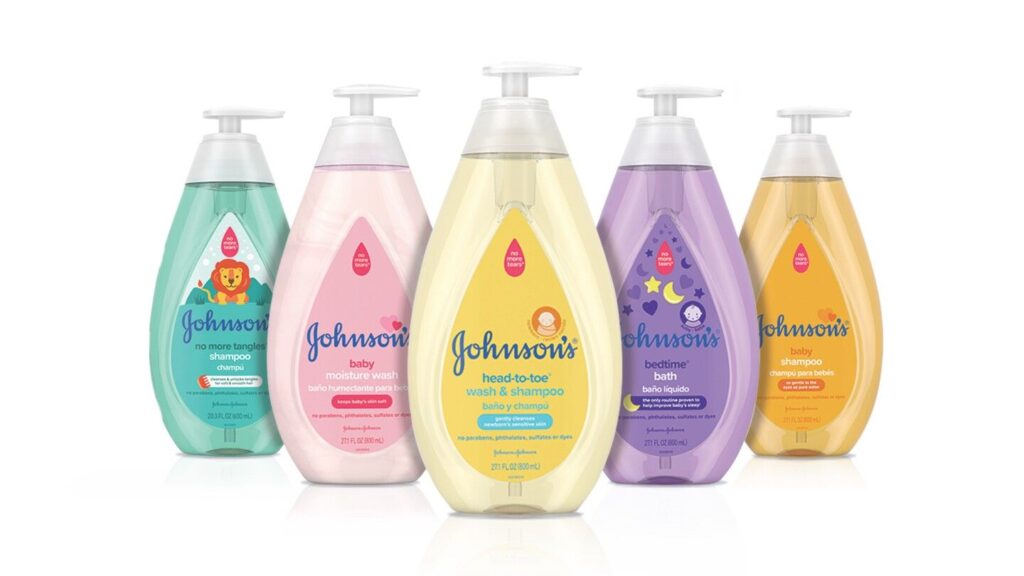Parents always want the best for their babies, especially when it comes to skincare and hygiene. One of the most commonly used baby products worldwide is Johnson’s Baby Shampoo. But with increasing concerns over harmful chemicals in personal care products, many parents are asking: Is Johnson’s Baby Shampoo chemical free?
This question has sparked numerous debates, with some believing that baby shampoos contain harsh chemicals, while others trust brands that have been around for decades. In this article, we will uncover 7 shocking facts about Johnson’s Baby Shampoo, explore its ingredients, and analyze whether it is truly safe for your little one.
Let’s dive in and separate myths from facts!
Is Johnson’s Baby Shampoo Chemical Free?

1. Johnson’s Baby Shampoo Contains No Harsh Sulfates
One common concern among parents is the presence of sulfates in baby shampoos. Sulfates like Sodium Lauryl Sulfate (SLS) and Sodium Laureth Sulfate (SLES) are known to cause irritation and strip away natural oils from the scalp.
The good news? Johnson’s Baby Shampoo is sulfate-free. The brand has reformulated its product to exclude these harsh ingredients, making it gentler for a baby’s delicate scalp and eyes. Instead, it uses milder surfactants like Cocamidopropyl Betaine, which cleanses without excessive dryness.
2. It Does Contain Preservatives – Are They Safe?
Every liquid cosmetic product requires preservatives to prevent bacterial growth. Johnson’s Baby Shampoo uses Phenoxyethanol as a preservative, which is considered a safer alternative to parabens.
While Phenoxyethanol is generally regarded as non-toxic in low concentrations, some experts advise caution, especially for newborns and infants. It is approved by regulatory bodies like the FDA and European Commission for use in baby products, but parents who prefer all-natural options may still opt for chemical-free alternatives.
3. Johnson’s Baby Shampoo is Free from Parabens and Phthalates
Parabens and phthalates have been linked to hormonal disruptions, and many consumers actively avoid them. Johnson’s Baby Shampoo is 100% paraben-free and phthalate-free, making it a safer choice for babies.
This reformulation aligns with global safety standards and addresses parental concerns over harmful preservatives and plasticizers in personal care products.
4. Fragrance in Johnson’s Baby Shampoo – Natural or Synthetic?
The “No More Tears” formula has a mild, signature scent that parents love. But is it natural?
The fragrance used in Johnson’s Baby Shampoo is synthetic. While the brand ensures that all fragrances meet safety guidelines, some parents prefer fragrance-free baby shampoos to avoid potential irritants. If your child has sensitive skin or allergies, opting for unscented or naturally scented shampoos may be a better choice.
5. It Has a pH-Balanced Formula for Gentle Cleansing
One of the main advantages of Johnson’s Baby Shampoo is its pH-balanced formulation. A baby’s scalp is sensitive, and using harsh shampoos with an incorrect pH level can lead to dryness or irritation.
Johnson’s ensures that its shampoo maintains a pH close to natural skin levels, preventing irritation and keeping the scalp healthy. This makes it an ideal choice for babies and even adults with sensitive scalps!
6. Global Regulatory Approvals and Dermatologist Testing
Johnson’s Baby Shampoo is tested by dermatologists and pediatricians to ensure safety. It adheres to regulatory standards set by the:
- U.S. Food and Drug Administration (FDA)
- European Commission (EC)
- Indian Standards (BIS)
- Cosmetic Ingredient Review (CIR) Panel
This makes it one of the most widely approved baby shampoos globally. However, being “approved” does not necessarily mean chemical-free—it simply meets safety thresholds.
7. Is Johnson’s Baby Shampoo Truly “Chemical-Free”?
The term “chemical-free” is often misleading because everything, including water, is a chemical! Johnson’s Baby Shampoo does contain synthetic ingredients, but they are carefully selected to be gentle and safe for babies.
While it eliminates many harmful chemicals like sulfates, parabens, and phthalates, it still contains preservatives, synthetic fragrances, and mild cleansing agents. If you are looking for a completely natural shampoo, there are organic alternatives available with botanical-based ingredients.
Pros and Cons of Using Johnson’s Baby Shampoo
If you’re considering using Johnson’s Baby Shampoo, here’s a quick look at its benefits and drawbacks:
| Pros | Cons |
|---|---|
| Sulfate-free – Gentle on baby’s scalp | Contains synthetic fragrance – May cause irritation in sensitive babies |
| pH-balanced formula – Prevents dryness and irritation | Has preservatives (Phenoxyethanol) – Some parents prefer preservative-free options |
| Dermatologist and pediatrician-tested – Safe for babies | Not completely natural – Contains some synthetic ingredients |
| Tear-free formula – No eye irritation | Mild cleansing power – May not be strong enough for oily hair |
| Paraben-free and phthalate-free – No harmful preservatives | Not organic – Lacks botanical-based ingredients |
Why is Johnson’s Baby Shampoo More Popular Than Other Brands?
Johnson’s Baby Shampoo has remained a market leader for decades, but what makes it more popular than other brands? Let’s compare it to some top competitors.
| Feature | Johnson’s Baby Shampoo | Aveeno Baby Shampoo | Himalaya Baby Shampoo |
|---|---|---|---|
| No Sulfates | Yes | Yes | Yes |
| No Parabens | Yes | Yes | Yes |
| No Phthalates | Yes | Yes | Yes |
| Fragrance-Free Option | No | Yes | Yes |
| Dermatologist Approved | Yes | Yes | Yes |
| pH-Balanced | Yes | Yes | Yes |
Key Reasons for Johnson’s Popularity:
- Widespread Trust & Brand Recognition – Johnson’s has been around for over 125 years, making it one of the most recognized baby care brands globally.
- Availability & Affordability – Unlike some organic brands, Johnson’s is easily accessible and competitively priced.
- Gentle, Safe, and Tested Formula – Continuous improvements have made it free from harsh chemicals while maintaining effectiveness.
- “No More Tears” Formula – A unique selling point that makes it safe for baby’s eyes.
While other brands offer great alternatives, Johnson’s remains a preferred choice due to its long-standing reputation, affordability, and dermatologist-approved formula.
8 Best Baby Shampoo for Hair Growth
Conclusion
So, is Johnson’s Baby Shampoo chemical-free? The answer is no, but it is free from many harsh chemicals that parents are concerned about. The brand has made significant changes to improve safety, removing sulfates, parabens, and phthalates from its formula.
For parents who prioritize natural or organic products, there are alternatives available. However, for those looking for a widely tested, dermatologist-approved, and pH-balanced baby shampoo, Johnson’s remains a popular choice.
Ultimately, the decision comes down to personal preference and your baby’s specific skin needs. Always check the ingredient list and consult with a pediatrician if you have concerns.
FAQ Section
1. Is Johnson’s Baby Shampoo safe for newborns?
Yes, it is formulated to be gentle and is dermatologist and pediatrician-tested. However, if your baby has sensitive skin, you may want to do a patch test first.
2. Does Johnson’s Baby Shampoo contain parabens?
No, it is paraben-free. The brand has removed parabens from its formula due to consumer concerns.
3. Can adults use Johnson’s Baby Shampoo?
Yes! Many adults with sensitive scalps or dry hair use it as a mild shampoo alternative.
4. Is Johnson’s Baby Shampoo tear-free?
Yes, it has a No More Tears formula, making it gentle on the eyes and scalp.
5. What is the safest alternative to Johnson’s Baby Shampoo?
If you prefer an all-natural option, brands like Himalaya, Mamaearth, and Aveeno Baby offer organic, chemical-free baby shampoos.




